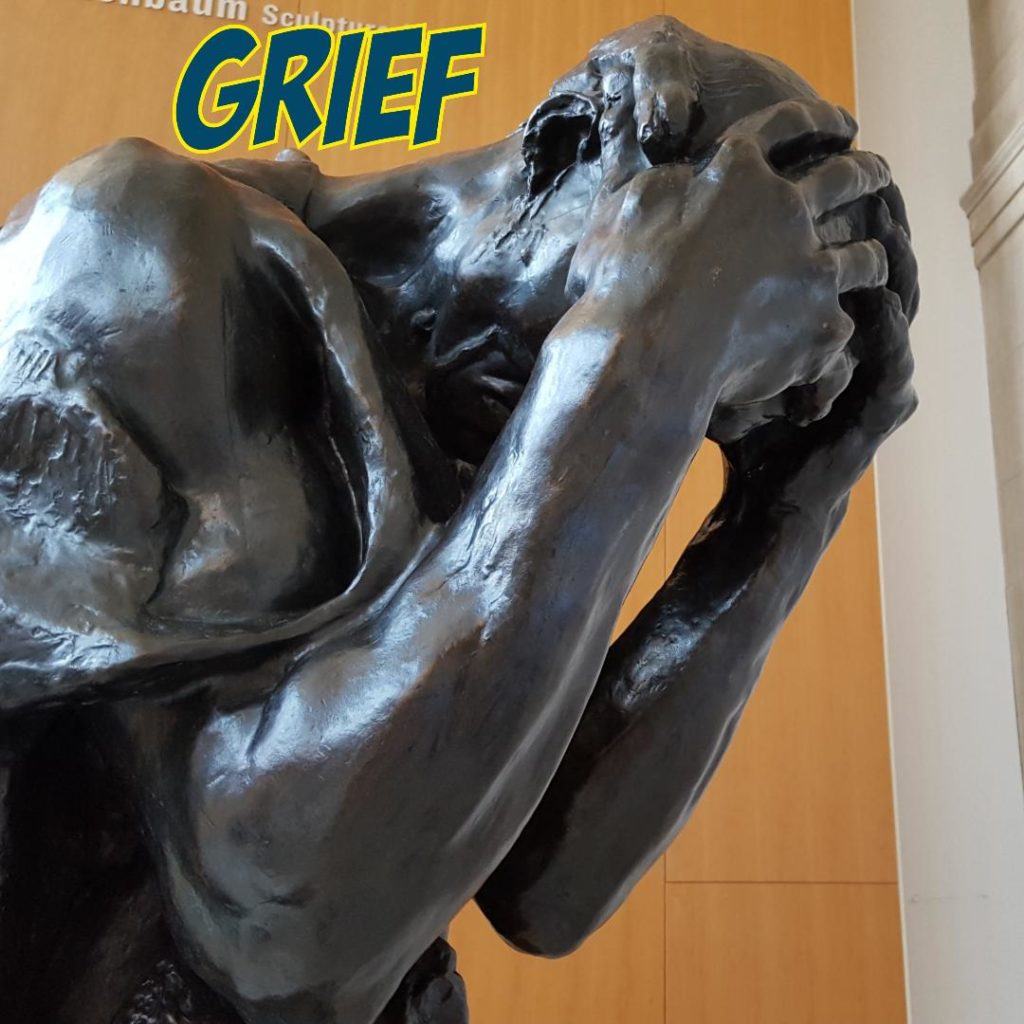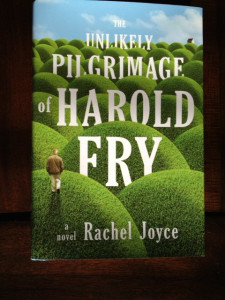
It’s as if a giant stop sign has been dropped into your life when someone experiences grief. The process of grief, like a fingerprint, is unique for each one of us. A year or so ago I read a “My Turn” essay in Newsweek written by the best friend of a woman who had died. She told the story, of caring for this friend’s adopted daughter, who did not cry over the loss of her mother for two years. This disturbed the writer and worried her because she didn’t understand it. Then the family dog died which unleashed buckets of tears, from the now twice-abandoned daughter. I repeat this story often to drive home the point that there is no right way to mourn, only your own way. Some people stop praying, some start praying. Some people numb themselves with alcohol, others lose their place in the world, while some find a new way to define themselves. Grief is profoundly humbling and devastating. In America, there is not enough support for talking about grief because we are creatures of comfort. Grief makes us uncomfortable.
If grief is expected, it’s easier to bear because there’s been time to say goodbye, complete unfinished business and imagine how the loss will feel. If grief comes as a surprise then these steps can only happen within yourself, over time.
When a parent or a child dies and hardly anything is spoken within the family or shared after the funeral, I believe it makes it harder for those left behind to deal with the loss. In Pittsburgh we have The Caring Place and The Good Grief Center, places where people can go to explore their grief with others. The Caring Place has a quote from Fred Rogers painted on the wall: “It is only natural that we and our children find many things hard to talk about. But anything human is mentionable and anything mentionable can be manageable. The mentioning can be difficult, and the managing too, but both can be done if we’re surrounded by love and trust.”
For most, grief gets easier to bear over time. How much time goes by? Depending on the original depth of connection it can take 1-1/2 to 3 years. There was a blog post where the author labeled herself “a toddler in grief ” because it’s only been three months. When grief saturates you and you don’t reclaim your life then there’s a larger problem. Some people want to honor their loved one by ‘keeping them alive’ as if sacrificing their own life will accomplish the trick. This is not OK. Getting stuck without any movement at all is not OK.
Making a panel for the Aids Quilt was a powerful experience that helped me grieve over the loss of a best friend. Creating a fabric representation of the underwater life that he loved so much and collecting “fish” from those who loved him, honored his passion for scuba diving. Receiving help from unexpected places in this project contributed to my healing. Even after more than 15 years, I still miss him and have never met anyone with his easy access to fun. The author Roger Rosenblatt wrote Making Toast about life, after the death of his adult daughter, in order to help him deal with the awful loss. Reading his words may help you to cope just the tiniest little bit. Reading or attending a grief support group or viewing the Aids Quilt panels all serves to remind us, we are not alone.
Tears and crying honor what’s important. At first it seems there will never be any space between the tears and then you’re surprised to find that it begins to happen more often.













